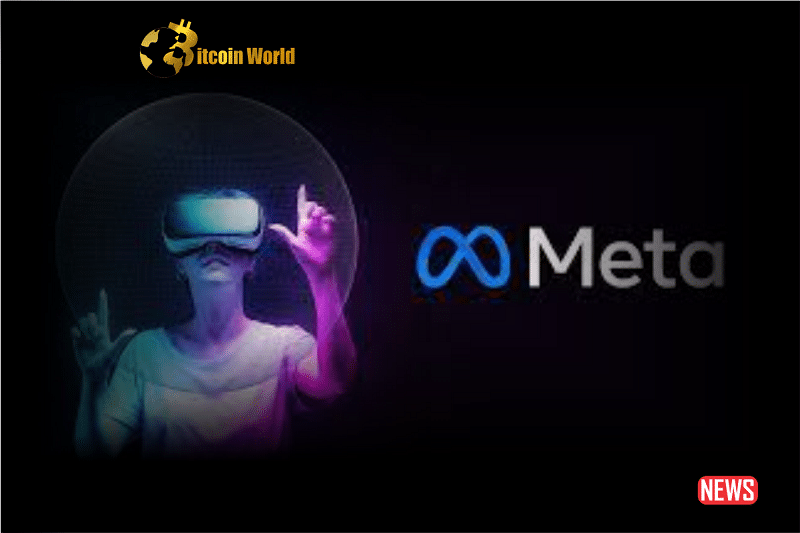Have you ever stopped to wonder if the line between the digital world and our physical reality is starting to blur? Meta, under the leadership of Mark Zuckerberg, is pushing those boundaries further than ever with their latest metaverse technology. Prepare to have your perception of reality tweaked, as Meta unveils “codec avatars” – a revolutionary leap in digital representation.
Codec Avatars: Stepping Out of the Uncanny Valley?
In a recent demonstration that has the tech world buzzing, Meta CEO Mark Zuckerberg joined forces with AI luminary Lex Fridman to showcase codec avatars, the brainchild of Meta’s Reality Labs. These aren’t your cartoonish avatars of yesteryear. We’re talking about digital twins so realistic, they capture the subtlest nuances of facial expressions and body language. This is a significant evolution from Meta’s previous avatar iterations, promising a more immersive and believable metaverse experience.
Lex Fridman, after experiencing a podcast recording session using these avatars, was visibly impressed. “It felt like we were talking in person,” he exclaimed, highlighting the profound sense of genuine connection facilitated by this technology. This isn’t just about fancy graphics; it’s about weaving Artificial Intelligence (AI) seamlessly into the fabric of virtual and augmented realities to enhance human interaction.
Beyond Just Looking Good: What’s the Big Deal?
Zuckerberg himself emphasized that codec avatars are designed to overcome the infamous “uncanny valley” – that unsettling feeling we get when digital representations are almost human, but just miss the mark, creating an eerie discomfort. The goal here is to craft avatars that feel familiar and welcoming, fostering a sense of natural interaction within the metaverse.
But the implications stretch far beyond mere aesthetics. Consider these key aspects:
- Enhanced Immersion: Codec avatars aim to make metaverse interactions feel more real and less artificial. This heightened sense of presence is crucial for activities ranging from virtual meetings to immersive gaming experiences.
- AI-Powered Realism: AI is the engine driving the realism of these avatars. It analyzes and replicates human expressions and movements with remarkable accuracy, creating a more believable digital representation.
- Meta’s Broader AI Strategy: Meta’s integration of AI isn’t limited to avatars. It’s a core component across their platforms – Facebook, WhatsApp, Instagram, and Oculus. AI is seen as vital for understanding and shaping the content and context within the metaverse ecosystem, as underscored by Meta CTO Andrew Bosworth at the Meta Connect conference.
Use Cases: Where Will Codec Avatars Shine?
Zuckerberg envisions codec avatars playing a pivotal role in transforming several key areas:
- Remote Work Revolution: Imagine attending virtual meetings where you feel truly present and connected with your colleagues, regardless of physical location. Codec avatars could make remote collaboration feel significantly more human and engaging.
- Gaming Reimagined: Gaming experiences could reach new levels of immersion with players embodied by realistic avatars, enhancing social interaction and the sense of presence within virtual game worlds.
- Social Interaction Evolution: From virtual gatherings to digital hangouts, codec avatars promise to make online social interactions feel more natural and less mediated by technology. Lex Fridman believes these avatars have the potential to fundamentally revolutionize human communication in the digital age.
Challenges on the Horizon: Navigating the Metaverse Maze
While the potential of codec avatars is undeniable, Meta faces significant challenges in bringing their metaverse vision to full fruition. Zuckerberg openly acknowledged these hurdles, ranging from:
- Privacy Concerns: Realistic digital representations raise complex questions about data privacy and security. How will Meta ensure the ethical and responsible use of the data required to create and maintain these avatars?
- Competition in the Metaverse Space: Meta isn’t the only player vying for dominance in the metaverse. Intense competition from other tech giants and emerging startups means they need to continuously innovate and adapt to stay ahead.
- Technological Hurdles: Developing and deploying such sophisticated technology at scale is a monumental task. Early metaverse demonstrations have faced glitches and technical limitations, indicating there’s still a long road ahead.
- Public Adoption and Acceptance: Perhaps the biggest challenge is convincing the broader public to embrace the metaverse. Despite the technological advancements, widespread adoption is not guaranteed, and overcoming public skepticism is crucial.
Zuckerberg emphasized the immense responsibility Meta carries in shaping this emerging digital landscape and expressed a commitment to refining their protocols and actively seeking feedback from diverse stakeholders. This open approach is essential for building trust and ensuring the metaverse evolves in a way that benefits society as a whole.
The Future is Blended: A Digital-Physical Coexistence?
Despite the challenges, Zuckerberg remains optimistic about the future. He envisions a world where, once we become accustomed to interacting with photorealistic avatars, we might even choose digital representations that diverge from our physical selves – exploring different identities and expressions within the metaverse. He believes the relentless march of AI will gradually address current reservations and pave the way for Meta’s ambitious vision: a seamless blend of digital and physical existence.
Meta’s journey toward this futuristic vision is unfolding step by innovative step. Codec avatars represent a significant stride forward, hinting at a future where our digital and physical lives become increasingly intertwined. Whether this future is fully embraced by the public remains to be seen, but Meta is certainly betting big on a world where our digital selves are just as real, and perhaps even more versatile, than our physical counterparts.
Disclaimer: The information provided is not trading advice, Bitcoinworld.co.in holds no liability for any investments made based on the information provided on this page. We strongly recommend independent research and/or consultation with a qualified professional before making any investment decisions.




